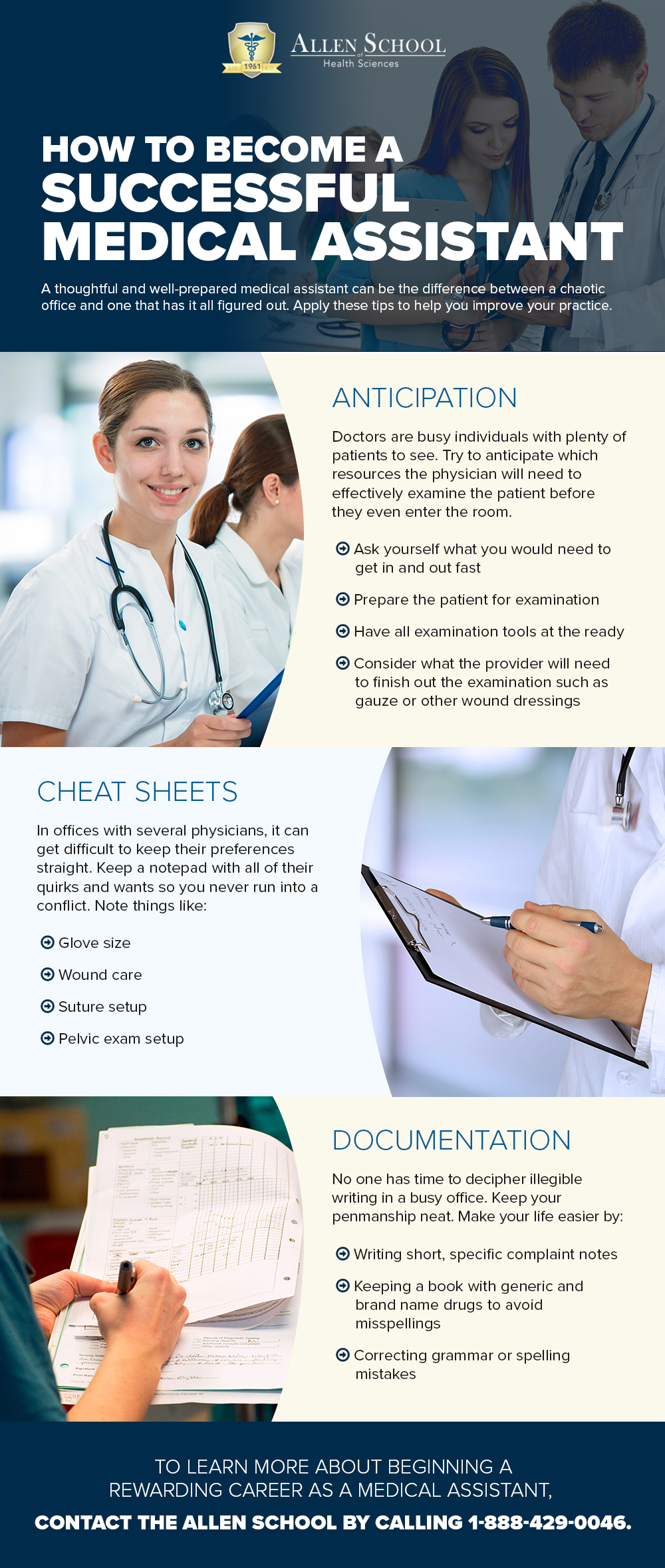
Working as a medical assistant means wearing a lot of hats while you’re at work. With so much to do, it’s easy to get mixed up. Though it’s fine to have an adjustment period for a new position, you’re still expected to conduct yourself as a medical professional immediately. After all, a medical assistant could be the difference between a smoothly-run or chaotic office.
Medical Knowledge
By working in a medical environment, you are automatically making a commitment to your colleagues and patients that you are able to understand and carry out standard medical procedures. Although it may seem obvious, as a
medical assistant, you are expected to have an in-depth knowledge of medical practice. Some of the most common technical duties include:
- Recording Medical Histories
- Exam Preparation
- Drawing Blood
- Explaining Treatment Options
- Administering Injections
- Checking Vital Signs
- Lab Specimen Collection
Bedside Manner
As a medical assistant you can expect a large portion of your day to be spent with patients. These patients may be nervous, scared or in pain and, it is your duty to provide a pleasant experience for them.
By flexing your customer service muscles, you can calm distraught patients and make the exam easier for your provider. Being an honest but empathetic medical assistant will assure your patients that you know what you’re doing and they have nothing to worry about. Once these patients are calm and collected, you can then proceed with explaining their treatment.
Details and Administrative
A commonly overlooked area of expertise in the medical assistant profession is recording details and patient records. Organization and neatness is key when typing or writing out a chief complaint report or filing insurance billing records. If any of your notes are handwritten, double-check for spelling and grammar mistakes and make sure the doctor can read your handwriting. That stereotype of messy medical professional handwriting is no more!
Make sure all of your complaint records are short and specific and your bookkeeping is impeccable to keep all sensitive information exactly where it should be.
Anticipating the Doctor’s Needs
As you set your patient up in the exam room, don’t forget to think about the physician’s needs. Depending on the patient’s chief complaint, you may need to outfit the room with different materials. For example, if the patient would like the doctor to check the healing of a wound, anticipate what the doctor needs to do in order to examine the patient. You should have the wound undressed when the provider enters with fresh wound dressing and cleaning agents at the ready for the end of the examination.
Remember: the doctor is incredibly busy with multiple patients. Do whatever you can to ensure he or she needs to do as little as possible when they enter an exam room. They’ll thank you for it.
Discovering a Career
Medical assistants are the backbone of any practice and can turn a hectic office around with just a few simple behavior changes. To learn more about beginning your career as a medical assistant, contact The Allen School or call 1-888-429-0046.

 Working as a medical assistant means wearing a lot of hats while you’re at work. With so much to do, it’s easy to get mixed up. Though it’s fine to have an adjustment period for a new position, you’re still expected to conduct yourself as a medical professional immediately. After all, a medical assistant could be the difference between a smoothly-run or chaotic office.
Working as a medical assistant means wearing a lot of hats while you’re at work. With so much to do, it’s easy to get mixed up. Though it’s fine to have an adjustment period for a new position, you’re still expected to conduct yourself as a medical professional immediately. After all, a medical assistant could be the difference between a smoothly-run or chaotic office.
